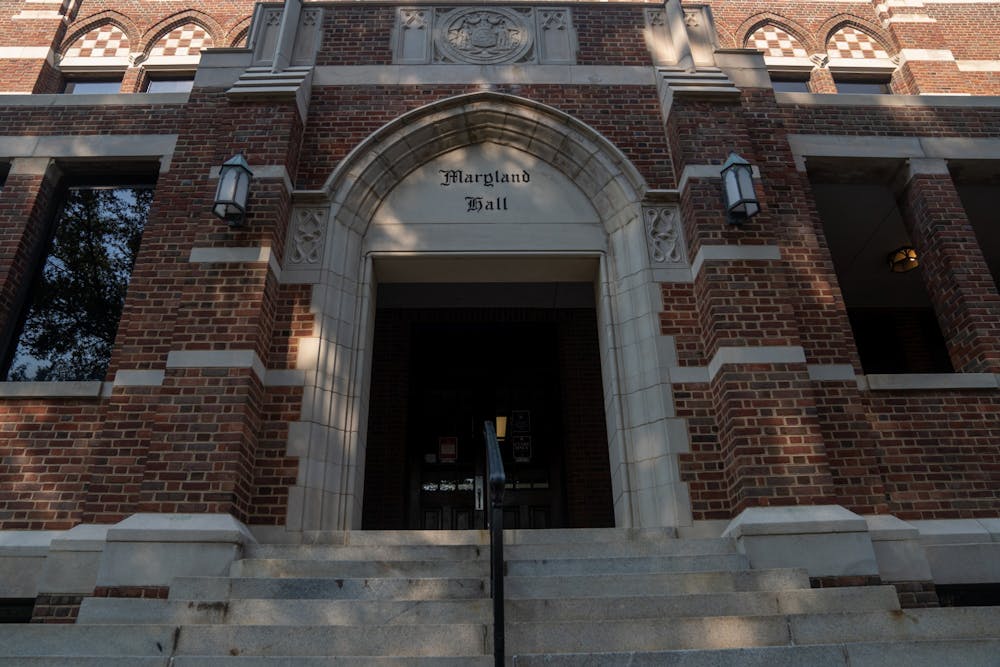The University of Richmond's endowment, which is valued at more than $2.5 billion, was not significantly affected by the COVID-19 pandemic, said David Hale, executive vice president and chief operating officer.
UR's endowment is a collection of more than 1,200 individual endowments, including scholarship funds, professorships, lectureships, library and book funds and other gifted funds, according to the UR Giving website. Endowment income supplements tuition and other revenues, according to the website.
The market value of the endowment decreased by approximately 5%, or an estimated $113 million, in the 2020 fiscal year because of spending on operations, Hale said. He added that a decrease in the endowment's market value was not irregular, and UR had faced losses during periods of economic hardship before, such as during the 2008 financial crisis.
"This is anything but a regular year, financially for the university as well, but as far as it pertains to the endowment, I would underscore so far it has not been an unusual year," Hale said.
UR drew an estimated $120 million, approximately 5% of the endowment, to spend on operations expenses in the 2020 fiscal year, such as lowering the cost of students' tuition, Hale said. Without the endowment, tuition would be $17,900 higher per year, according to the UR Giving website.
Annual endowment income amounts to about $60 million and pays for portions of faculty salaries, scholarships and other expenditures. UR spent its allotted budget for the 2020 fiscal year but had neither a positive nor negative investment return for the year, which ended on June 30, he said.
"The investment return for our endowment was essentially flat — 0% — for the year," Hale said. "Fortunately it really has not [affected the endowment] thus far."
Hale noted that the measure of the 2020 investment return was preliminary.
Approximately 40% of UR's annual operating budget comes from the endowment, Hale said. An estimated 49% comes from the tuition, room and board revenue minus financial aid provided to students; 11% comes from other sources, including current-use contributions, grants and retail operations, he said.
A majority of the endowment is invested and a small amount stays in UR's operating budget, said Tory Sprehe, director of investor relations at Spider Management Company LLC, UR's investment firm.
Spider Management runs a diversified portfolio, which protected UR's endowment assets at the end of the 2020 fiscal year, Sprehe said.
"When the markets crashed in the first quarter when ... the economy shut down due to the pandemic, we certainly saw losses in the investment portfolio," she said. "But [our loss] was about half or so of what you saw in public stock markets.
Enjoy what you're reading?
Signup for our newsletter
"The markets actually significantly rallied in the second quarter very quickly .... It bounced back pretty quickly so our portfolio has participated in that rally as well."
Sprehe said Spider Management had structured the endowment's investment portfolio in a way that would protect UR's capital and the endowment in the event that there were significant economic drawdowns.
Spider Management's investment philosophy focuses on long-term investment returns, portfolio diversification and capital preservation to ensure the endowment exists in perpetuity for UR and market losses can be minimized, she said.
"The main tenet of our investment strategy is focusing on long term investment returns since the endowment is an important — very important — asset to the university," Sprehe said. "We really maintain a long-term outlook and try not to get distracted by the noise of short-term market moves.
"It's very important that our investment strategy is sticking to our overall strategy even in times of stress, especially since our investment strategy is so focused on downside protection."
Although the COVID-19 pandemic did not have a significant impact on the investment return of the endowment once the market rebounded before end of the 2020 fiscal year, UR's pandemic-rooted financial hardships affected UR's ability to collect revenue from tuition and room and board fees, which normally constitutes a majority of UR's operating budget, Hale said.
UR did not change the amount it drew from the endowment for the 2021 fiscal year, Hale said.
"Year over year we typically increase [funds drawn from the endowment] by say, 2% or 3%, [but this year] we decided to just hold to the $120 million," he said. "We were unsure as to how the investment markets would react and so we didn't decrease support to the university from the endowment, but we didn't increase it either and played it pretty conservatively."
Contact investigative editor Morgan Howland at morgan.howland@richmond.edu.
Support independent student media
You can make a tax-deductible donation by clicking the button below, which takes you to our secure PayPal account. The page is set up to receive contributions in whatever amount you designate. We look forward to using the money we raise to further our mission of providing honest and accurate information to students, faculty, staff, alumni and others in the general public.
Donate Now



